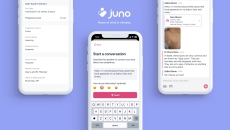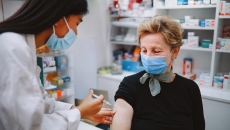Tammy Lovell
The validation of the Saudia Arabian Mouwasat hospitals demonstrates the adoption and maturity of electronic medical record functions.
Nuffield Trust report highlights discrepancies in ethnicity coding.
Patients in England have until 23 June to opt out.
HIMSS21 Europe
Digital health experts from the UK will join the debate on how healthcare can evolve beyond COVID.
A health app that allows parents to access NHS paediatricians and midwives has come under fire for operating without a Care Quality Commission (CQC) registration.
HIMSS21 Europe
Speakers from The Netherlands will be among healthcare leaders sharing their expertise at the upcoming HIMSS21 European health conference.
HIMSS21 Europe
The network of surveillance hubs will identify and track new COVID variants and emerging diseases.
HIMSS research found that digital transformation has the potential to either decrease or increase healthcare workers’ stress levels, according to how it is implemented.
Ireland’s health service IT system has been shut down as a precautionary measure, following a cyber attack today.
The Queen's Speech to officially reopen Parliament promised legislation to empower the NHS to innovate and embrace technology.








